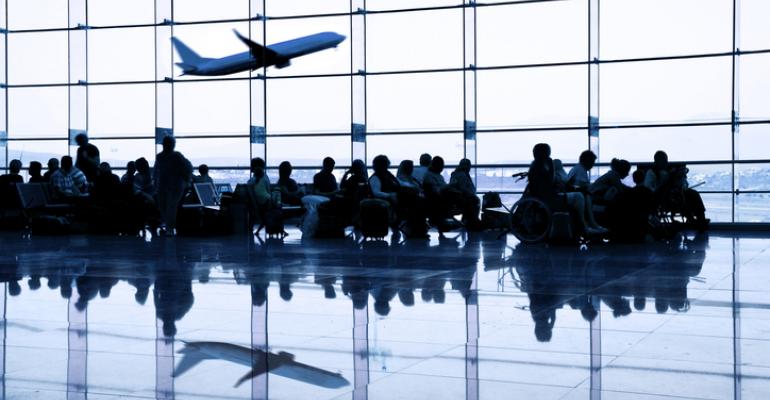The long-anticipated return of in-person business meetings, conventions, and trade shows is being blunted by the difficult conditions for air travel, according to planners who responded to a MeetingsNet survey conducted between June 20 and 23. In fact, one planner said that “canceled flights are currently our biggest concern above all else, even Covid.”
A prime example of the situation planners face: When asked about how strongly the rising cost of air travel was affecting their planning of upcoming events—with 1 being “not at all” and 5 being “severely”—67.3 percent of respondents rated it a 4 or 5, while another 27 percent rated it a 3.
Specifically, 69.2 percent of respondents said they expect to see fewer attendees at their upcoming events. And when it comes to site selection, 52 percent said that high airfares are affecting their choices in one of two ways: They are only considering cities that offer more carriers and flights (60 percent) or they are opting to hold regional meetings to minimize air travel (40 percent).
The other complicating factor for meetings is the potential for schedule changes along with delays and cancellations. When asked how strongly the uncertainty of flight schedules and on-time arrivals is affecting the planning of upcoming events—with 1 being “not at all” and 5 being “severely”—63.5 percent rated it a 4 or 5, while another 32.7 percent rated it a 3.
And when asked whether they have limited the potential destinations for upcoming events because of uncertainty around flight schedules and on-time arrivals, 57.7 percent said they are doing so.
Responding planners—58 percent of whom plan corporate meetings, while 42 percent plan association events—shared other perspectives regarding how they are dealing with rising airfares and uncertainty around seat inventory and on-time arrivals:
“Our budgets have been blown out of the water with the rising airfares, which means having to cut other attendee experience events.”
“It's scary trying to set budgets when you have no idea what to expect as far as how airfares will go in the next three to four months.”
“Schedule changes and flight cancellations are disrupting meeting start and end times, causing a severe trickle-down effect of changes.”
“We are having to plan farther ahead to ensure that flight disruptions don't prevent us from arriving at our events in time for set-up and pre-con meetings. We've normally been able to arrive just one day ahead, but now we're planning for two-day advance arrivals in some cases.”
“We are not having as many people from the same organization attend our meetings—only the key thought leaders are attending because companies are not able to fund as many people to attend. It means that our live events are attended primarily by advanced professionals (who arguably don't need the training as much), while novice/early career professionals are primarily attending online.”
"Our attendance numbers are incredibly low, and the most common factor cited is the cost of travel. We will be contracting with smaller venues and committing to fewer sleeping rooms and F&B until attendance stabilizes. This has boosted virtual attendance and might permanently impact our in-person attendance.”
“Ancillary costs associated with the air-travel situation are affecting our budget. We’ve needed to add room nights pre-event and post-event, and even add staff to monitor flights and to accommodate changes. For incentives, winners who book early are "losing out” because winners who book later may have to come in early or stay late, or they get a premium seat because that is all that is left.”





